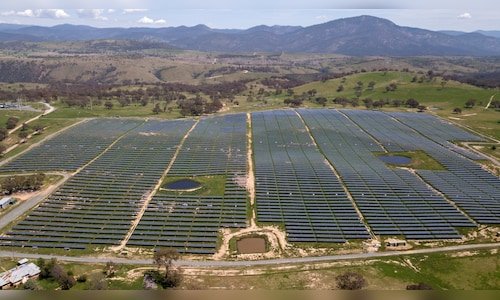Govt asks solar module industry to prove losses caused by dumping cheap imports

The non-market economy clause allows the government to take suo motu action to protect the solar module market. However, the government will require collated domestic production data from the industry as evidence to demonstrate injury to businesses caused by the dumping of cheap imports.
Sources said the government needs to take a holistic view from all stakeholders and calibrate actions based on evidence, as significant input imports are also part of the total imports. Any restrictions on these imports in the medium term could negatively impact local production and capacity building.
India is also looking to diversify its import sources for inputs to mitigate risks associated with over-reliance on a few countries. The country heavily relies on imports for electronic sensors, critical minerals, several APIs and chemicals, various types of glass, and iron and steel plates.
Many European countries have already imposed anti-dumping duties on solar modules from China and other nations to protect their local industries. In July 2024, India’s Directorate General of Trade Remedies ordered a $577 per tonne anti-dumping duty for five years on aluminium frames of solar modules imported from China.
As part of its efforts to achieve net-zero emissions by 2070, the government and the industry are consistently working to scale up local production. In February, the government informed Parliament that India had achieved self-sufficiency in producing solar modules, with solar panels worth $1.03 billion exported from India in FY 2022-23.
However, increasing the use of renewable energy will require a significant scaling up of manufacturing by domestic companies. India has set a target of establishing 50% cumulative electric power installed capacity from non-fossil fuel-based energy resources by 2030, translating to 450 GW of renewable energy capacity and 280 GW of solar energy capacity.
As of August 2024, India’s solar energy capacity stood at 89.4 GW. The National Institute of Solar Energy (NISE) has assessed the country’s solar potential to be about 748 GW, assuming that solar PV modules cover 3% of the wasteland area.








